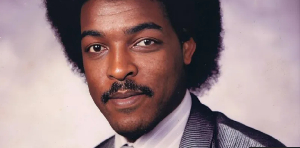The past two decades have transformed consumers’ relationships with their banks. They can now pay bills with their mobile phones; they rarely (if ever) have to look their bank manager in the eye, and they can pick and choose their providers of financial services.
So now is the time for banks to convince customers that their money is safe and that banks have customers’ interests at heart, not simply their own. The magnitude of the task for bankers cannot be underestimated, but perhaps they should start off by counting from one to ten:
1. Confront the truth Like the alcoholic, banks first need to acknowledge that they have a problem. By admitting to errors and recognising the need for contrition, they will be in a stronger position to tackle the problems and repair their reputation.
2. Have a sense of honour Banks must be clear that they espouse honourable values and commit unequivocally to transparency.
3. Consider the common good The bank manager used to be a pillar of the community. Today retail banks somehow appear antiquated and ancillary while investment banks have become symbols of greed and wealth destruction. Banks must make themselves concerned with the common good.
4. Be prepared for change Today’s models in banking, whether retail, wholesale or investment, will not necessarily be the models for the future. Customers, more empowered than ever before, are crying out for a clearer separation between “high street” banking and sophisticated financial services with their sometimes arcane web of risks.
5. Impose a duty of care Just as doctors take the Hippocratic Oath, so bankers should impose upon themselves a duty of care to put the customer first and to act consistently, ethically and openly in all they do. The Financial Services Authority’s retail distribution review into consumer protection is a step in the right direction but this commitment to the customer’s wellbeing should be formalised across the industry and instilled in banking professionals through training and regular refresher courses.
6. Remember your stakeholders A bank has stakeholders beyond its directors, employees and shareholders. The customer is crucial and the bank has a wider responsibility to society as a whole. It might be wise for banks to borrow an idea from the BBC, which runs audience councils comprising volunteers who, reflecting the diversity of the population, assess the services the BBC provides for the licence fee.
7. Keep a human face Technology has hijacked relationships in banking. Customers still sometimes need to talk to another person — and a person who is not just following the call centre’s script. Consumer technology used to be intimidating. Then Apple came along with intuitive products and literally transparent stores, staffed by people who will take time with us and understand what we are looking for. Banks need to go back to giving customers a well-informed person to whom they can talk, face to face.
8. Choose leaders who are role models When the rogue trader “London Whale” opened its jaws for JP Morgan, its chief executive, Jamie Dimon, faced the public confidently, but not arrogantly. He took responsibility, demonstrating integrity, leadership and also genuine contrition. He appointed a taskforce and introduced new management. He was seen to be accountable and in control and remains president and CEO. Things went differently for Bob Diamond when it came to crisis management at Barclays.
9. Be ready to take tough decisions A bank is not some kind of private club and there is no room for cosiness in the boardroom when dealing with controversial issues such as remuneration. The board that appoints a CEO should also be ready to fire that CEO if circumstances demand it. As Sir David Walker, who led a government inquiry into corporate governance, has said, frank discussion is still compromised by a “rather British view that challenge [in the boardroom] is discourteous”.
10. Reaffirm the value of corporate culture In tough times, culture could turn out to be the hardest asset that a company has. Values, integrity and teamwork all matter and each bank needs to define its culture in succinct, lucid terms and ensure that all its employees, from the top down, adhere to its tenets.
Crucial to sustaining a culture is the recruitment and training of staff. Just like a US President, a bank employee needs to be closely scrutinised over his or her first 100 days, since that is when the corporate culture becomes embedded in the psyche. The future of banking lies with today’s new recruits, so the ethical messages that the employee receives should be clear and unequivocal.
Banks need to be seen putting respect for customers back at the heart of their culture. Banks must never again neglect to earn and retain the trust of the people whose money they use to make theirs. As they are discovering, once trust has been lost, it might take years to regain. Start counting now.
Business News of Tuesday, 24 September 2013
Source: The Telegraph/GB/
Ways banks can win back customers’ trust
Entertainment
















